
-
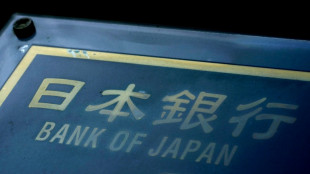 Asian markets rise as US inflation eases, Micron soothes tech fears
Asian markets rise as US inflation eases, Micron soothes tech fears
-
Giant lanterns light up Christmas in Catholic Philippines

-
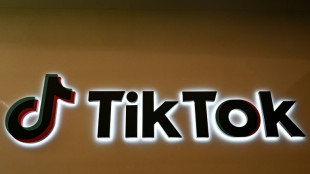 TikTok: key things to know
TikTok: key things to know
-
Putin, emboldened by Ukraine gains, to hold annual presser

-
 Deportation fears spur US migrants to entrust guardianship of their children
Deportation fears spur US migrants to entrust guardianship of their children
-
Upstart gangsters shake Japan's yakuza

-
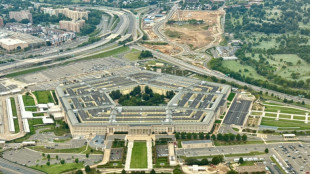 Trump signs $900 bn defense policy bill into law
Trump signs $900 bn defense policy bill into law
-
Stokes's 83 gives England hope as Australia lead by 102 in 3rd Test
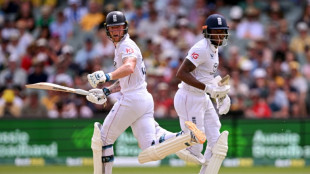
-
 Go long: the rise and rise of the NFL field goal
Go long: the rise and rise of the NFL field goal
-
Australia announces gun buyback, day of 'reflection' after Bondi shooting

-
 New Zealand Cricket chief quits after split over new T20 league
New Zealand Cricket chief quits after split over new T20 league
-
England all out for 286, trail Australia by 85 in 3rd Test

-
 Australian announces gun buyback, day of 'reflection' after Bondi shooting
Australian announces gun buyback, day of 'reflection' after Bondi shooting
-
Joshua takes huge weight advantage into Paul fight
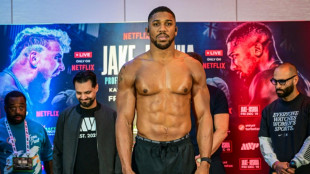
-
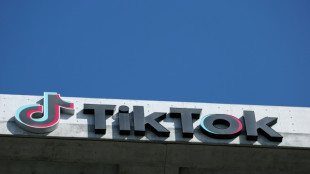 TikTok signs joint venture deal to end US ban threat
TikTok signs joint venture deal to end US ban threat
-
Conway's glorious 200 powers New Zealand to 424-3 against West Indies
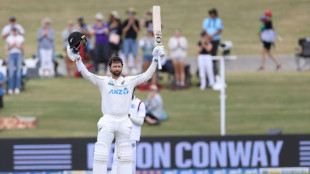
-
 WNBA lockout looms closer after player vote authorizes strike
WNBA lockout looms closer after player vote authorizes strike
-
Honduras begins partial vote recount in Trump-dominated election

-
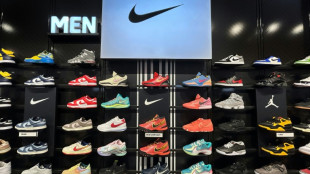 Nike shares slump as China struggles continue
Nike shares slump as China struggles continue
-
Hundreds swim, float at Bondi Beach to honour shooting victims

-
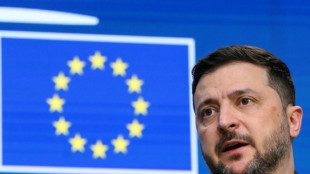 Crunch time for EU leaders on tapping Russian assets for Ukraine
Crunch time for EU leaders on tapping Russian assets for Ukraine
-
Pope replaces New York's pro-Trump Cardinal with pro-migrant Chicagoan

-
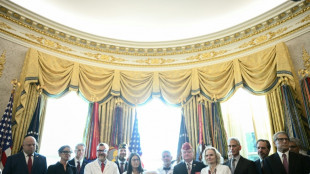 Trump orders marijuana reclassified as less dangerous drug
Trump orders marijuana reclassified as less dangerous drug
-
Rams ace Nacua apologizes over 'antisemitic' gesture furor

-
 McIlroy wins BBC sports personality award for 2025 heroics
McIlroy wins BBC sports personality award for 2025 heroics
-
Napoli beat Milan in Italian Super Cup semi-final
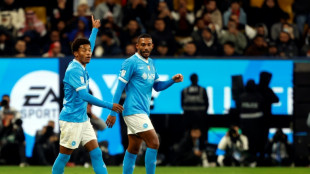
-
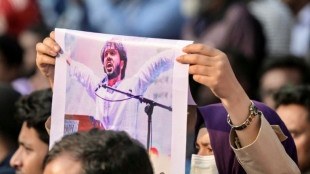 Violence erupts in Bangladesh after wounded youth leader dies
Violence erupts in Bangladesh after wounded youth leader dies
-
EU-Mercosur deal delayed as farmers stage Brussels show of force
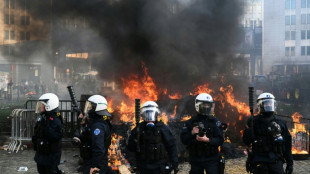
-
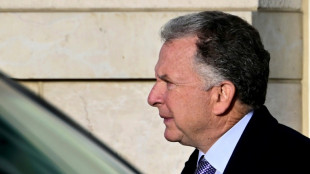 US hosting new Gaza talks to push next phase of deal
US hosting new Gaza talks to push next phase of deal
-
Chicago Bears mulling Indiana home over public funding standoff
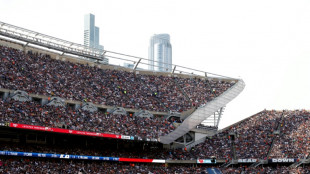
-
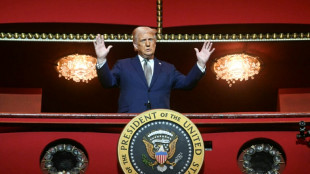 Trump renames Kennedy arts center after himself
Trump renames Kennedy arts center after himself
-
Trump rebrands housing supplement as $1,776 bonuses for US troops
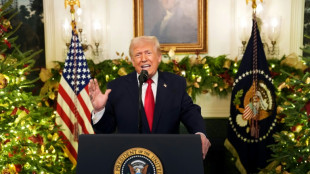
-
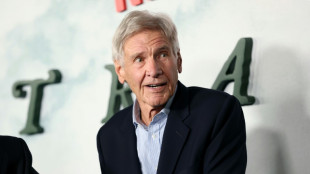 Harrison Ford to get lifetime acting award
Harrison Ford to get lifetime acting award
-
Trump health chief seeks to bar trans youth from gender-affirming care
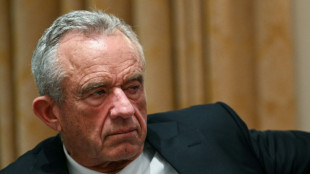
-
 Argentine unions in the street over Milei labor reforms
Argentine unions in the street over Milei labor reforms
-
Trump signs order reclassifying marijuana as less dangerous

-
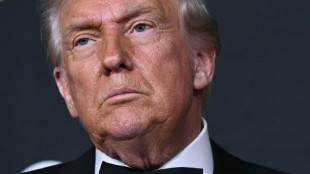 Famed Kennedy arts center to be renamed 'Trump-Kennedy Center'
Famed Kennedy arts center to be renamed 'Trump-Kennedy Center'
-
US accuses S.Africa of harassing US officials working with Afrikaners
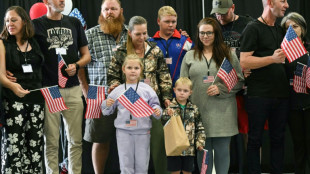
-
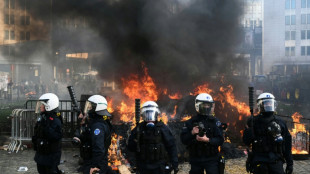 Brazil open to EU-Mercosur deal delay as farmers protest in Brussels
Brazil open to EU-Mercosur deal delay as farmers protest in Brussels
-
Wounded Bangladesh youth leader dies in Singapore hospital

-
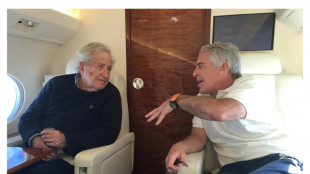 New photo dump fuels Capitol Hill push on Epstein files release
New photo dump fuels Capitol Hill push on Epstein files release
-
Brazil, Mexico seek to defuse US-Venezuela crisis
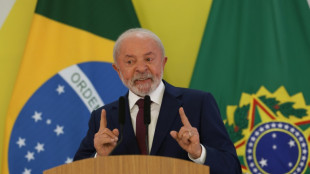
-
 Assange files complaint against Nobel Foundation over Machado win
Assange files complaint against Nobel Foundation over Machado win
-
Private donors pledge $1 bn for CERN particle accelerator
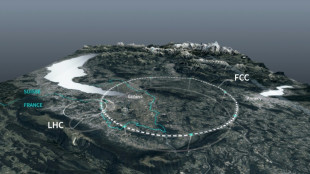
-
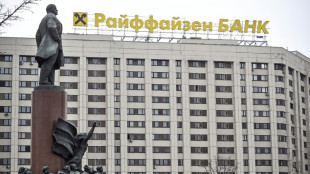 Russian court orders Austrian bank Raiffeisen to pay compensation
Russian court orders Austrian bank Raiffeisen to pay compensation
-
US, Qatar, Turkey, Egypt to hold Gaza talks in Miami

-
 Lula open to mediate between US, Venezuela to 'avoid armed conflict'
Lula open to mediate between US, Venezuela to 'avoid armed conflict'
-
Brussels farmer protest turns ugly as EU-Mercosur deal teeters
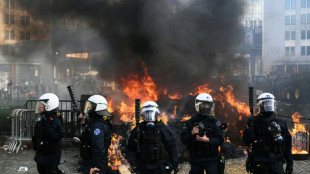
-
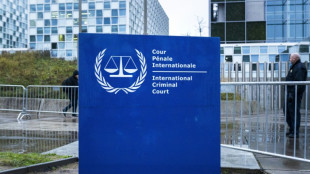 US imposes sanctions on two more ICC judges for Israel probe
US imposes sanctions on two more ICC judges for Israel probe
-
US accuses S. Africa of harassing US officials working with Afrikaners
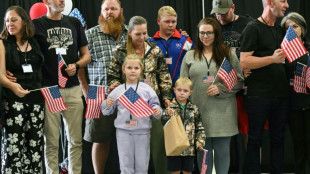

China, US slash sweeping tariffs in trade war climbdown
The United States and China slashed sweeping tariffs on each others' goods for 90 days on Wednesday, after a temporary ceasefire in a brutal trade war that roiled global markets and international supply chains.
Washington and Beijing agreed to drastically lower skyhigh tariffs in a deal that emerged from pivotal talks at the weekend in Geneva.
US President Donald Trump said Washington now had the blueprint for a "very, very strong" trade deal with China that would see Beijing's economy "open up" to US businesses, in an interview broadcast Tuesday on Fox News.
"We have the confines of a very, very strong deal with China. But the most exciting part of the deal...that's the opening up of China to US business," he told the US broadcaster while aboard Air Force One on the way to the start of his Gulf tour.
"One of the things I think that could be most exciting for us and also for China, is that we're trying to open up China," he added, without elaborating on details.
Trump had upended international commerce with his sweeping tariffs across economies, with China hit hardest.
Unwilling to budge, Beijing had responded with retaliatory levies that brought tariffs on both sides well over 100 percent.
After billions were wiped off equities and with businesses ailing, negotiations finally got underway at the weekend in Geneva between the world's trade superpowers to find a way out of the impasse.
Under the deal, the United States agreed to lower its tariffs on Chinese goods to 30 percent while China will reduce its own to 10 percent -- down by over 100 percentage points.
The reductions came into effect just after midnight Washington time (0401 GMT) on Wednesday, a major de-escalation in trade tensions that saw US tariffs on Chinese imports soar to up to 145 percent and even as high as 245 percent on some products.
Markets have rallied in the glow of the China-US tariff suspension.
Chinese officials have kept their cards closer to their chests, pitching themselves at a summit in Beijing with Latin American leaders this week as a stable partner and defender of globalisation.
"There are no winners in tariff wars or trade wars," Xi told leaders including Brazil's Luiz Inacio Lula da Silva, while his top diplomat Wang Yi swiped at a "major power" that believed "might makes right".
- 'Risk of renewed escalation' -
Deep sources of tension remain, too -- the US additional tariff rate remains higher than China's because it includes a 20 percent levy over Trump's complaints about Chinese exports of chemicals used to make fentanyl.
Washington has long accused Beijing of turning a blind eye to the fentanyl trade, something China denies.
And while the US said it sees room for progress on the issue, Beijing on Tuesday warned Washington to "stop smearing and shifting blame" onto it.
Analysts also warn that the possibility of tariffs coming back into force after 90 days simply piles on more uncertainty.
"Further tariff reductions will be difficult and the risk of renewed escalation persists," Yue Su, Principal Economist at The Economist Intelligence Unit, told AFP.
Trump's rollercoaster tariff row with Beijing has wreaked havoc on US companies that rely on Chinese manufacturing, with a temporary de-escalation only expected to partially calm the storm.
And Beijing officials have admitted that China's economy -- already ailing from a protracted property crisis and sluggish consumer spending -- is likewise being affected by the trade uncertainty.
"Both sides have endured a good deal of economic pain and they can still endure a little bit more," Dylan Loh, an assistant professor at Singapore's Nanyang Technological University, told AFP.
W.Lapointe--BTB
